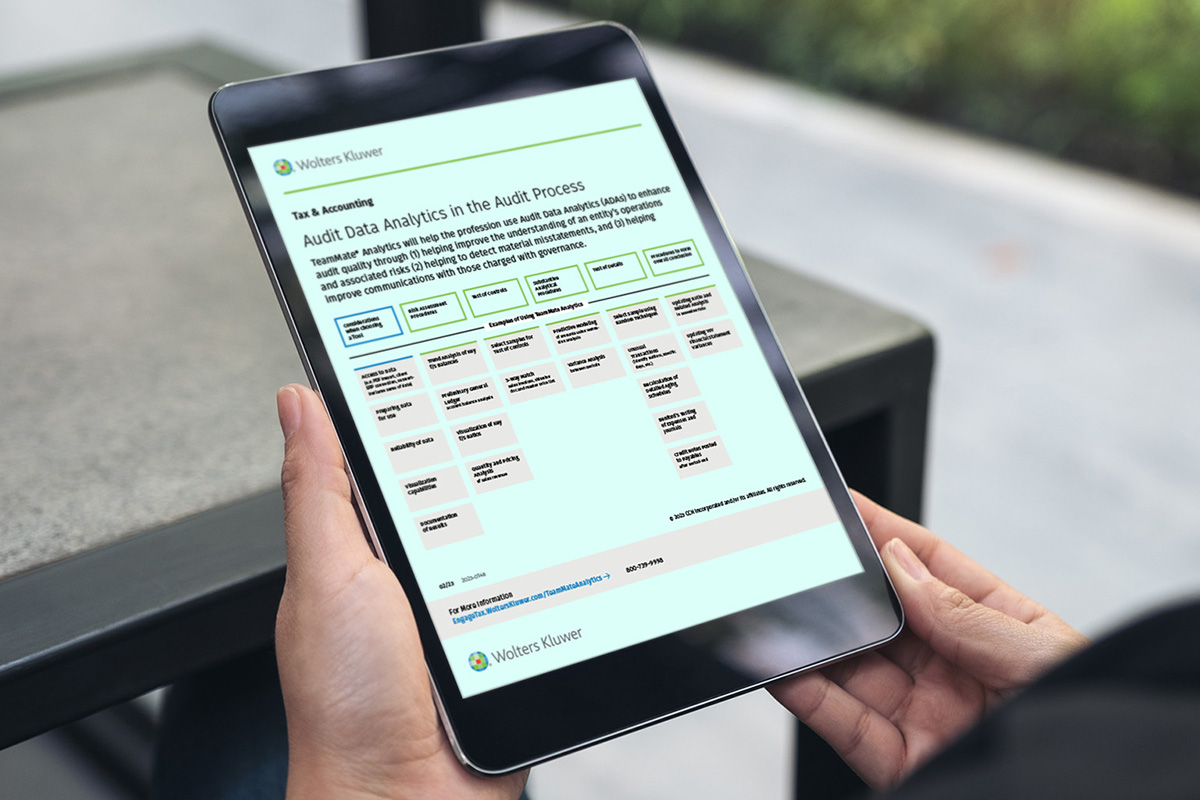

Finance
How Far Back Can The IRS Audit You?
Published: October 31, 2023
Discover how far back the IRS can audit your finances and gain peace of mind knowing the limits of their reach. Learn more about IRS audits and your rights.
(Many of the links in this article redirect to a specific reviewed product. Your purchase of these products through affiliate links helps to generate commission for LiveWell, at no extra cost. Learn more)
Table of Contents
Introduction
When it comes to taxes and the IRS, having peace of mind is crucial. One common concern among taxpayers is the fear of an IRS audit. The thought of being subjected to an audit can be overwhelming, especially if you’re unsure of how far back the IRS can go to review your financial records. Understanding the statute of limitations for IRS audits is essential for taxpayers to know their rights and ensure compliance with tax laws.
The statute of limitations refers to the timeframe within which the IRS can initiate an audit or take legal actions to collect taxes owed. Generally, the statute of limitations provides a certain level of protection for taxpayers against indefinite scrutiny of their tax returns. It ensures that individuals and businesses are not subjected to audits or tax-related disputes indefinitely, creating a balance between the taxpayer’s responsibility and the IRS’s ability to enforce tax laws.
However, it is important to note that the statute of limitations can vary depending on various factors, including the type of tax return filed and the circumstances surrounding the taxpayer’s situation. In this article, we will explore the different statutes of limitations for IRS audits and provide an overview of the exceptions that may extend or entirely eliminate these limitations.
Statute of Limitations for IRS Audits
The statute of limitations for IRS audits sets the time limit within which the IRS can review and assess your tax returns. Generally, the IRS has a timeframe of three years, six years, or an unlimited timeframe to initiate an audit, depending on the circumstances. Let’s explore each of these scenarios in more detail:
-
Three-Year Statute of Limitations
Under normal circumstances, the IRS has three years from the date your tax return is filed to conduct an audit. This three-year period starts on the date you filed your return or the due date of the return, whichever is later. For example, if you filed your tax return on April 15th, 2022, the IRS has until April 15th, 2025, to initiate an audit.
-
Six-Year Statute of Limitations
If your tax return includes a substantial understatement of income, meaning you underreported your income by 25% or more, the IRS has an extended period of six years to audit your return. This provision gives the IRS additional time to uncover any potentially fraudulent activity or deliberate attempts to avoid paying taxes.
-
No Statute of Limitations
In some cases, there is no statute of limitations for IRS audits. This typically occurs when a taxpayer fails to file a tax return, files a fraudulent return, or engages in other fraudulent tax activities. In these scenarios, the IRS can initiate an audit at any time, regardless of how many years have passed since the tax return should have been filed.
It’s important to remember that these timeframes represent the IRS’s window for initiating an audit. If the IRS does not begin an audit within the applicable statute of limitations, it generally loses the right to do so. However, it’s worth noting that the statute of limitations can be extended or suspended under certain circumstances, which we will explore in the next section.
Three-Year Statute of Limitations
The three-year statute of limitations is the standard timeframe within which the IRS can initiate an audit of your tax return. It applies to most tax returns filed by individuals and businesses. Under this rule, the IRS has three years from the date your tax return was filed or the due date of the return, whichever is later, to conduct an audit.
For example, if you filed your tax return on April 15th, 2022, and the due date for that tax return was also April 15th, 2022, the IRS would have until April 15th, 2025, to initiate an audit. However, if you filed your tax return on June 1st, 2022, the IRS would have until June 1st, 2025, to begin an audit.
It’s essential to keep accurate records and retain supporting documentation for at least three years from the date you filed your tax return. This includes receipts, invoices, bank statements, and any other relevant financial records. By maintaining organized records, you can easily substantiate your reported income and deductions in case of an audit.
If the IRS does not initiate an audit within the three-year window, it generally loses the right to challenge the accuracy of your tax return. However, there are some exceptions that can extend or suspend the three-year statute of limitations, and we will explore those in the next section.
Overall, understanding the three-year statute of limitations provides taxpayers with a sense of security and certainty regarding their tax obligations. It allows individuals and businesses to move forward without the constant fear of a potential audit lurking in the distant future. However, it’s still crucial to comply with tax laws and file accurate returns to avoid any complications or disputes with the IRS.
Six-Year Statute of Limitations
The six-year statute of limitations applies in situations where a taxpayer substantially understates their income on their tax return. Substantial understatement refers to underreporting income by 25% or more. In such cases, the IRS has an extended period of six years from the date the tax return was filed to initiate an audit.
The six-year statute of limitations provides the IRS with additional time to uncover instances of deliberate tax evasion or fraudulent activity. By extending the timeframe for audits, the IRS aims to ensure fair and accurate reporting of income and prevent taxpayers from intentionally avoiding their tax obligations.
If you find yourself in a situation where you have significantly underreported your income or engaged in fraudulent tax activities, it’s important to consult with a tax professional or an attorney who specializes in tax law. They can guide you through the process of rectifying any errors and help you navigate any potential penalties or legal consequences.
It’s worth noting that the six-year statute of limitations only applies to cases where there is a substantial understatement of income. For other issues or discrepancies on your tax return, the standard three-year statute of limitations typically applies. However, it’s always best to consult with a tax professional to understand the specific rules and limitations that may pertain to your unique situation.
To protect yourself and ensure compliance with tax laws, it’s crucial to keep accurate records of your income and deductions. By maintaining detailed documentation, you can easily substantiate the figures reported on your tax return, reducing the likelihood of errors or understatements that may trigger an extended statute of limitations.
Being aware of the six-year statute of limitations and understanding its implications gives taxpayers a clear understanding of the potential timeframe within which the IRS can audit their tax returns. By remaining vigilant and adhering to proper reporting procedures, you can avoid unnecessary audits and maintain a healthy financial relationship with the IRS.
No Statute of Limitations
In certain circumstances, the IRS can completely disregard the statute of limitations and initiate an audit at any time, regardless of how many years have passed since the tax return should have been filed. These scenarios typically involve instances of serious tax evasion, deliberate fraud, or failure to file a tax return.
If a taxpayer fails to file a tax return altogether, the IRS has the authority to initiate an audit indefinitely. This means that even if several years or decades have passed since the tax return should have been filed, the IRS can still review and assess the taxpayer’s financial records.
Similarly, if a taxpayer is found guilty of filing a fraudulent tax return, where there was a deliberate attempt to deceive the IRS by providing false information or concealing income, there is no statute of limitations for conducting an audit. The IRS can pursue legal action and initiate an audit at any time, regardless of how long ago the fraudulent return was filed.
In cases involving offshore tax evasion or undisclosed foreign financial accounts, the statute of limitations is also suspended. The IRS has the authority to initiate an audit without any time restrictions if a taxpayer fails to report or disclose the existence of offshore assets, income, or financial accounts.
It is important to note that the absence of a statute of limitations does not mean that the IRS will necessarily audit every taxpayer who has a history of non-filing or fraudulent activities. The IRS prioritizes cases based on factors such as the magnitude of the tax evasion, the availability of resources, and other enforcement priorities.
To avoid potential issues and the risk of an indefinite audit, it is crucial to fulfill your tax obligations by filing accurate and timely tax returns. Ensuring compliance with tax laws and maintaining proper records can help you avoid situations where there is no statute of limitations, providing you with peace of mind and preventing any potential legal or financial consequences in the future.
Exceptions to the Statute of Limitations
While the statute of limitations provides a general framework for the timeframe within which the IRS can initiate an audit, there are some exceptions that can extend or suspend these limitations. Understanding these exceptions can help taxpayers be aware of potential scenarios where the statute of limitations may not apply. Let’s explore some of the common exceptions:
-
Extended Statute of Limitations for Fraud
If a taxpayer is found to have committed tax fraud or filed a fraudulent tax return, the statute of limitations is extended. In such cases, the IRS has an unlimited timeframe to initiate an audit. It’s important to note that tax fraud involves intentional deception or misrepresentation of information to evade taxes, and it carries severe penalties.
-
Bankruptcy
If a taxpayer files for bankruptcy, the statute of limitations for IRS audits is typically suspended. This means that the timeframe for initiating an audit is put on hold until the bankruptcy proceedings are resolved. Once the bankruptcy is finalized, the remaining statute of limitations will resume.
-
Foreign Asset Reporting
For taxpayers with foreign financial accounts, there are specific reporting requirements to disclose these assets to the IRS. Failure to comply with these reporting obligations can result in the suspension or extension of the statute of limitations. The IRS may have an extended timeframe to initiate an audit in cases where the taxpayer fails to report foreign assets or income.
-
No Statute of Limitations for Tax Evasion
If a taxpayer engages in intentional tax evasion, there is no statute of limitations. Tax evasion involves deliberately evading or avoiding paying taxes through fraudulent means. In such cases, the IRS can initiate an audit at any time and pursue criminal charges if warranted.
It’s important to consult with a tax professional or an attorney to understand the specific exceptions that may apply to your situation. These professionals can provide guidance and assistance in navigating the complexities of tax laws and help ensure compliance with reporting requirements.
By understanding the exceptions to the statute of limitations, taxpayers can stay informed and take necessary precautions to mitigate the risk of extended audits or potential legal consequences. Adhering to tax laws, maintaining proper records, and seeking professional advice when needed can help taxpayers navigate IRS audits and protect their interests.
Conclusion
Understanding the statute of limitations for IRS audits is crucial for taxpayers to have peace of mind and ensure compliance with tax laws. While the general rule is that the IRS has three years from the date of filing to initiate an audit, there are exceptions that can extend or eliminate the limitations.
The three-year statute of limitations provides individuals and businesses with a reasonable timeframe within which the IRS can review their tax returns. It emphasizes the importance of maintaining accurate records and substantiating reported income and deductions. By retaining proper documentation, taxpayers can navigate audits confidently and minimize the risk of disputes or penalties.
In cases of substantial understatement of income or instances of tax fraud, the IRS has an extended six-year statute of limitations or even an unlimited timeframe to initiate an audit. These provisions aim to deter deliberate attempts to avoid tax obligations and ensure fair and accurate reporting.
It’s important to note that there are scenarios where the statute of limitations may not apply at all. Failure to file a tax return, filing a fraudulent return, or engaging in offshore tax evasion can result in an indefinite timeframe for the IRS to initiate an audit.
By understanding the exceptions to the statute of limitations and engaging with tax professionals when necessary, taxpayers can navigate audits and compliance with confidence. Adhering to tax laws, fulfilling reporting obligations, and seeking professional advice can help individuals and businesses avoid unnecessary audits, penalties, or legal consequences.
It’s always advisable to stay proactive in tax planning, consult with experts when needed, and maintain accurate and organized records. By doing so, taxpayers can navigate the complexities of the tax system and ensure compliance with laws while minimizing the risk of audits and maintaining a healthy relationship with the IRS.














